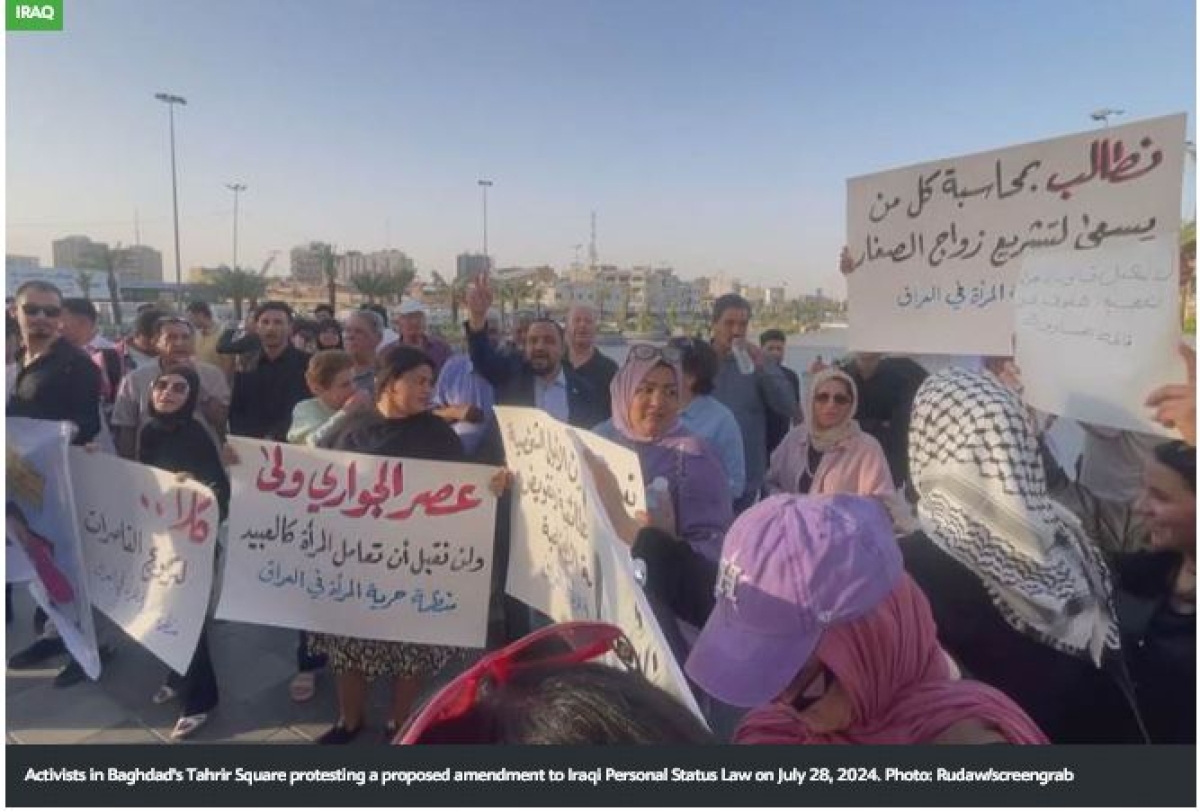Proteste in Bagdad gegen erneuten Versuch, Kinderheirat zu legalisieren

Bildquelle: Rudaw
Immer wieder versuchen vom Iran beeinflusste schiitische Parteien, Kinderheiraten im Irak zu legalisieren. Auch diesmal regt sich Widerstand.
Es ist nicht das erste Mal, dass unter dem Einfluss des Iran stehende Politiker im Irak nach dem Vorbild der Islamischen Republik das Heiratsalter für Mädchen auf neun Jahre senken wollen - so alt nämlich war Aisha als Mohammed sie heiratete und, so die Legitimation für die religiös sanktionierte Päderasterie, dem Propheten sollte man ja nacheifern.
Mehrmals schon sind sie mit diesem Vorstoß gescheitert und auch diesmal regt sich Widerstand. So fand erst jüngst wieder eine Demonstration gegen das Vorhaben in Bagdad statt:
Human rights activists gathered on Sunday in Baghdad’s Tahrir Square to protest a proposed amendment to Iraq’s Personal Status Law that has drawn strong criticism for its measures such as the legalization of child marriage under certain religious jurisprudence.
“If I don’t criminalize the marriage of minors today, who will protect children from a perverted father? Who will protect daughters from drug-addicted fathers? Today, despite having criminalized the marriage of minors, some fathers sell their children because they are addicts,” Zainab Jawad, an activist at the protest, told Rudaw.
The law makes women “merely a tool for sex and reproduction,” she said.
If the amendment to the Personal Status Law of 1959 is passed, couples will be required to select the religion of the spouse whose laws will govern their marriage and the Jaafari school of Shiite jurisprudence would permit marriage for girls as young as nine and boys at fifteen.
Mahir Rajab, another protester, condemned the amendment as destructive as it undermines Iraqi families and society. He said the government should instead address issues of drug abuse, human rights violations, and domestic violence.
Versions of the bill, which was first proposed in 2014, have faced criticism for its provisions that include prohibiting Muslim men from marrying non-Muslims, legalizing marital rape, and requiring women to obtain their husband's permission to leave the house, according to Human Rights Watch.
In November 2017, the United Nations mission in Iraq also expressed criticism as the proposed changes could violate the UN Convention on the Rights of the Child, of which Iraq is a signatory.